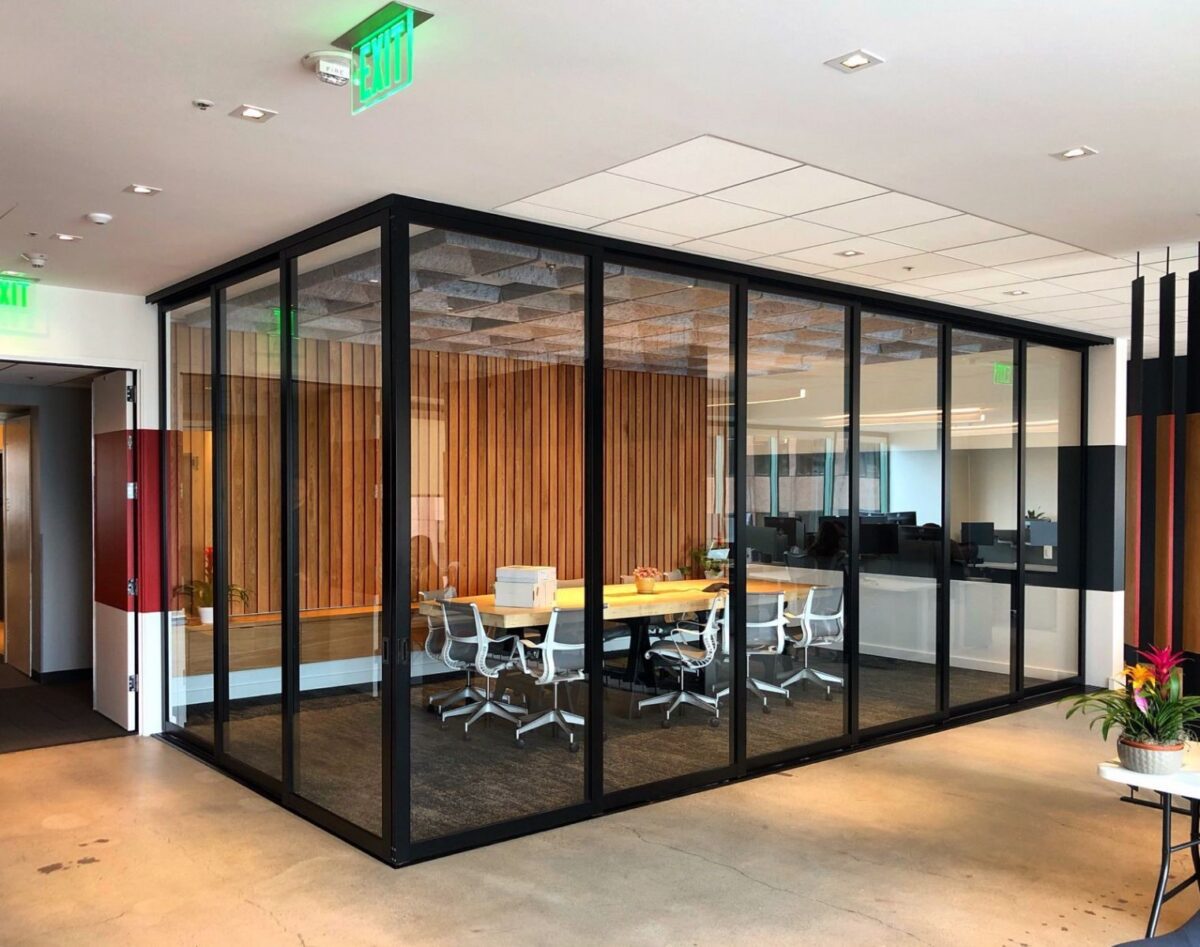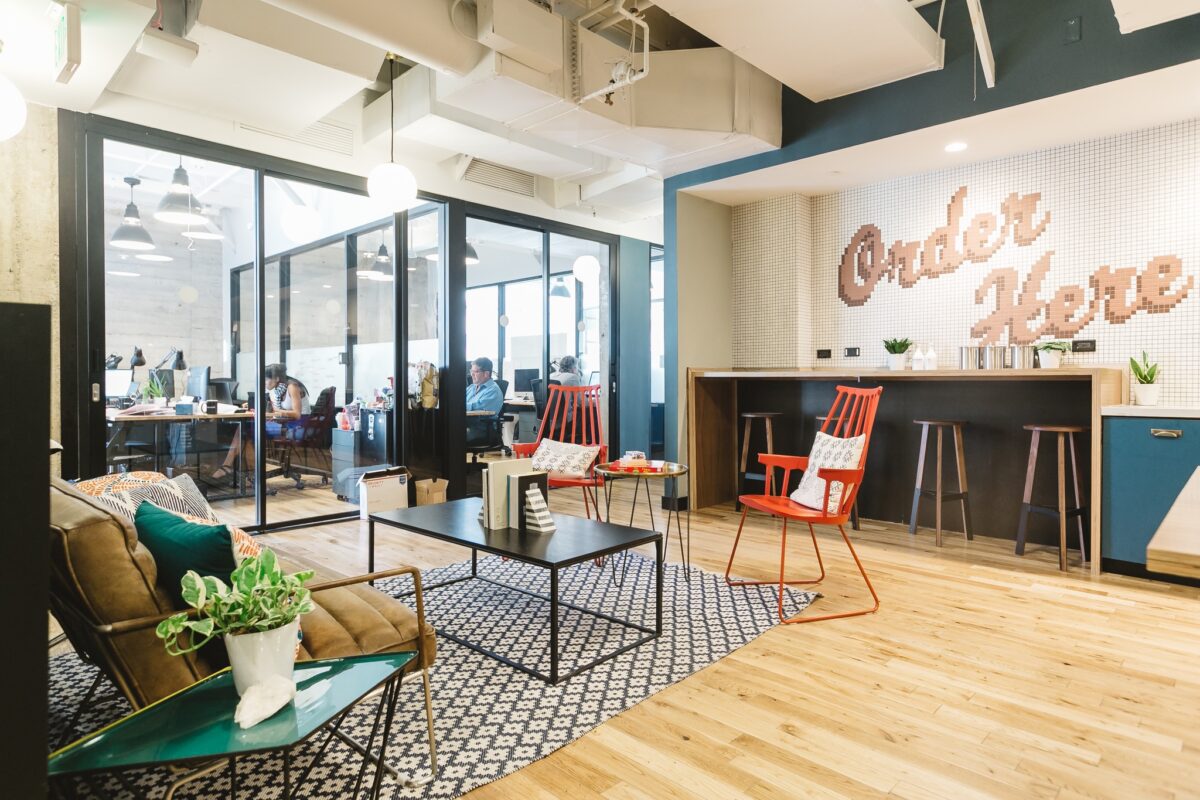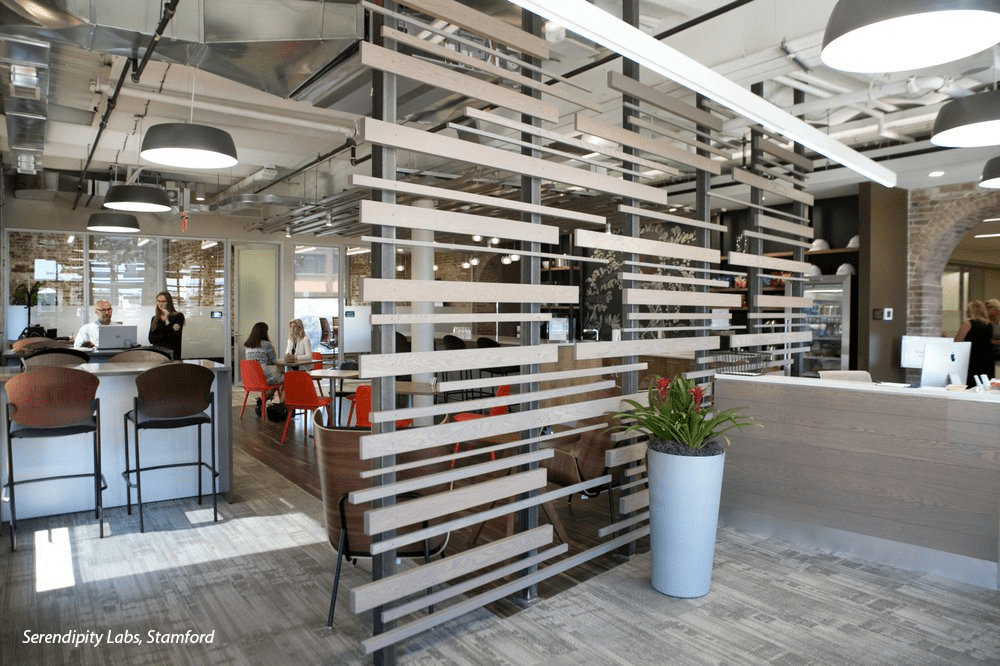Coworking spaces are typically membership-based communal workspaces where freelancers, remote workers, and entrepreneurs work side by side. These shared spaces have proven benefits for worker satisfaction, morale, and productivity—and that should pique the interest of every business owner.
Harvard Business Review published one of the most comprehensive studies to date on coworking spaces. In it, a research team from the University of Michigan’s Ross School of Business interviewed several founders of coworking spaces and community managers, and surveyed hundreds of workers from dozens of different coworking spaces around the country.
Here’s what they found:
People who use coworking spaces feel a stronger sense of identity at work.
Since coworking spaces don’t fuel the kind of direct competition or company politics of traditional workplaces, people don’t feel the need to put on a persona. That means they’re freer to be themselves.
And because coworking spaces bring people of different backgrounds and experiences together, individuals can set themselves apart by touting their unique skill sets.
Perhaps most importantly, coworking has a social mission and code of conduct outlined in the Coworking Manifesto. Since coworking is as much a movement as it is a concept, people who use coworking spaces say they feel part of something bigger.
They feel more in control.
Unlike traditional offices, many coworking spaces are accessible 24/7. That means people can put in an extra-long day when they have a deadline to meet, take a siesta in the afternoon, run errands, or go to the gym mid-day. This kind of flexibility is especially attractive to Millennials, who will dominate the workforce in the coming years.
Coworking spaces provide a good balance of autonomy and structure. They’re usually designed with different work zones, including open rooms with communal seating, cafés, and quiet spaces with glass office partitions for privacy. Simple freedoms like choosing where to sit and being able to move about freely give workers a greater sense of control.
They also feel like part of a community.
One of the main draws of coworking is the sense of community it creates. Entrepreneurs or freelance workers could just as easily work from home, but they wouldn’t have the same opportunities to collaborate and connect with others.
Each coworking space has its own vibe and atmosphere. WeWork emphasizes community events like happy hours and lunch-and-learns. Proximity Space is focused on creating inspirational work environments. Galvanize is committed to creating a learning community for technology and Serendipity Labs is opening locations all over as well as, Venture X.
While community is at the heart of coworking spaces, socializing is optional. But the researchers from the University of Michigan found that even the potential for interactions helped people in coworking spaces identify with the community.
So, it’s clear that workers like the energy and collaboration of coworking spaces. But how does that translate to productivity? According to research by Deskmag and Deskwanted, 74% of coworkers reported being more productive, and more than two-thirds reported feeling more creative and collaborative on projects. It’s why huge companies like Google and Zappos are sending their employees to work in coworking spaces.
Building Your Own Coworking Space
Coworking spaces are popping up all over the country. If you’re not near a major city or there are no coworking spaces available near you, consider starting your own. Depending on your location, you might be able to find a landlord or property manager willing to offer you an inexpensive lease or month-to-month arrangement.
Look for a space with an open floor plan conducive to communal seating. Also make sure to create private areas within the space where people can retreat for work that requires intense concentration. Movable walls and glass partitions are ideal for creating private or semi-private spaces and sectioning off part of a room. They’re designed for versatility, so you can reconfigure them as your needs change.
Space Plus: Helping You Build an In-Demand Coworking Space
The workplace is evolving, and coworking spaces are helping meet the demands of the new workforce. Space Plus, a division of The Sliding Door Company, specializes in interior door solutions for commercial buildings and office spaces.
Our office partitions are sleek and modern, constructed of the highest quality tempered or laminated glass. Our talented team will help you choose from a variety of designs, glass types, and frame finishes to suit your space.
View our gallery for inspiration and learn more about our glass partitions and sliding glass door solutions for office environments here.












